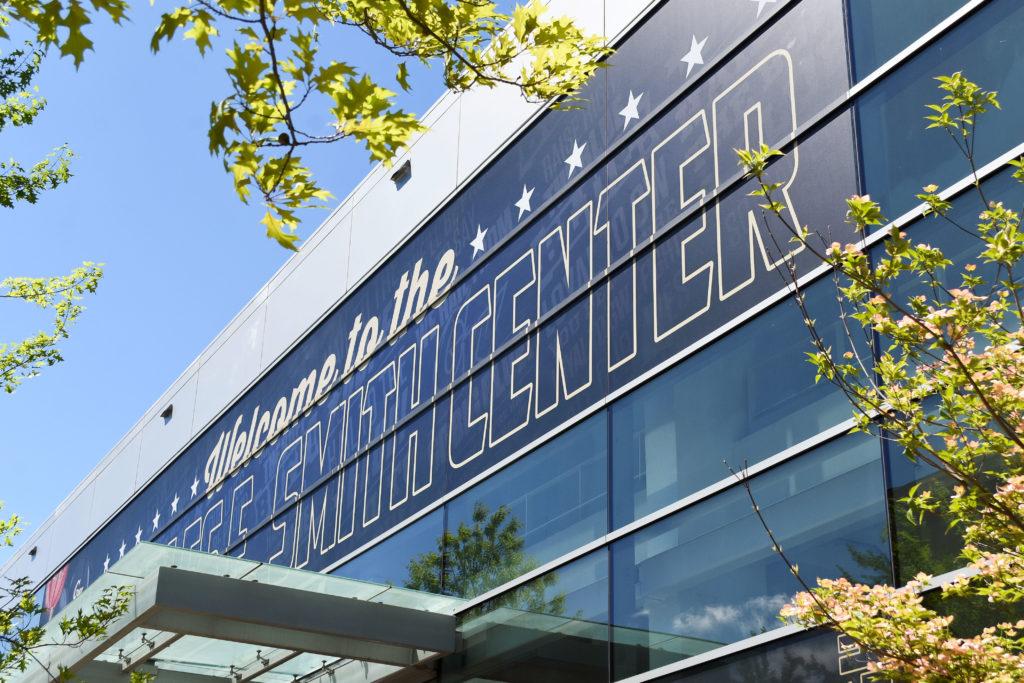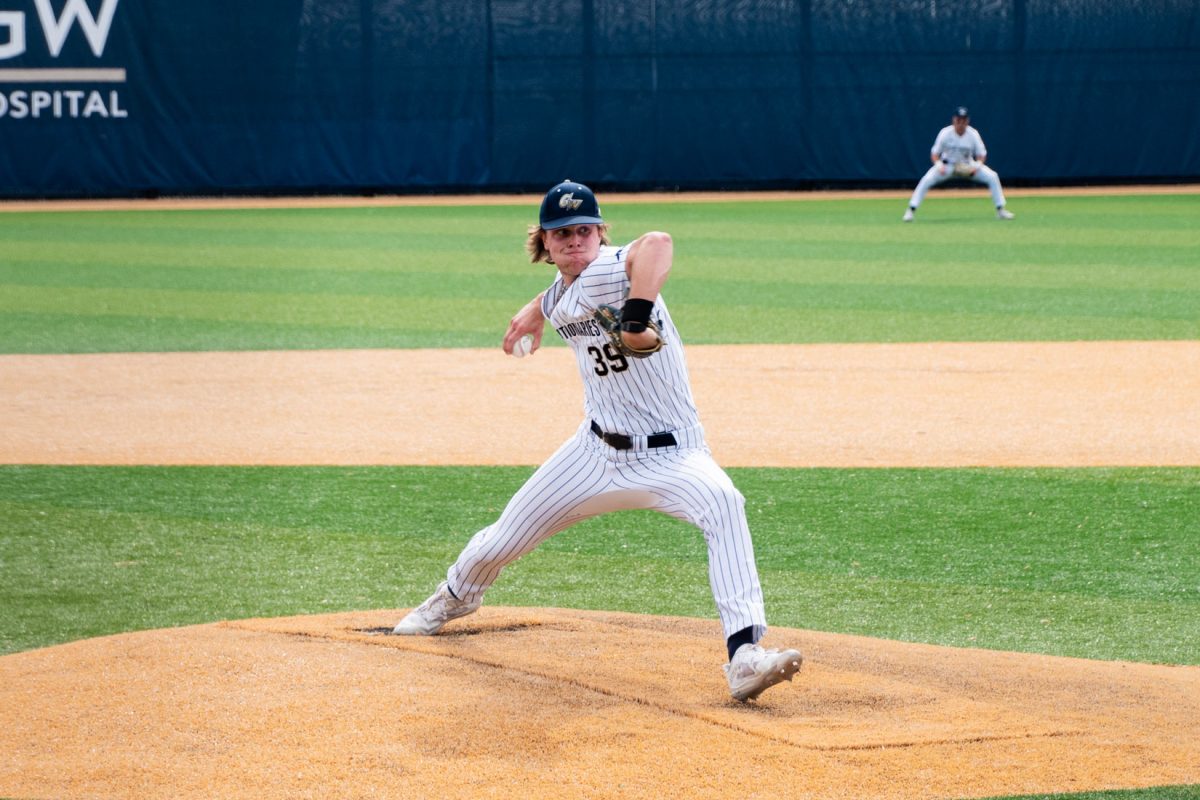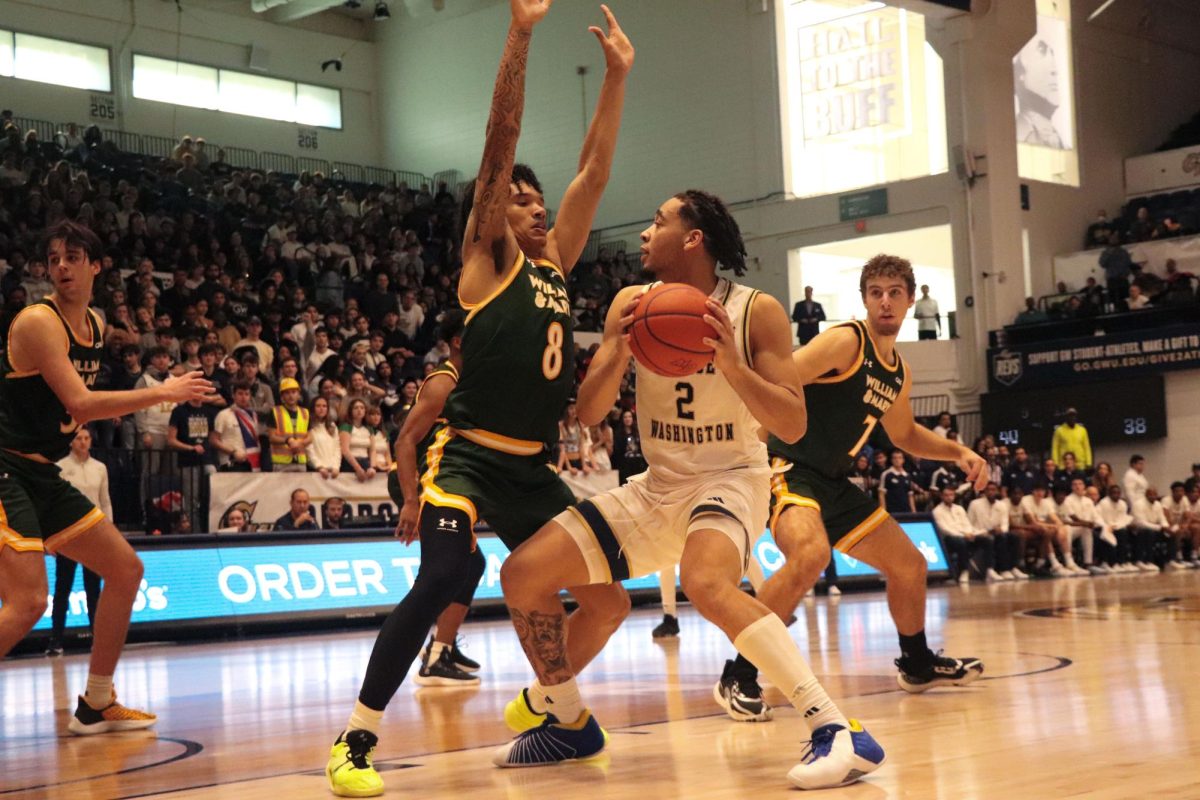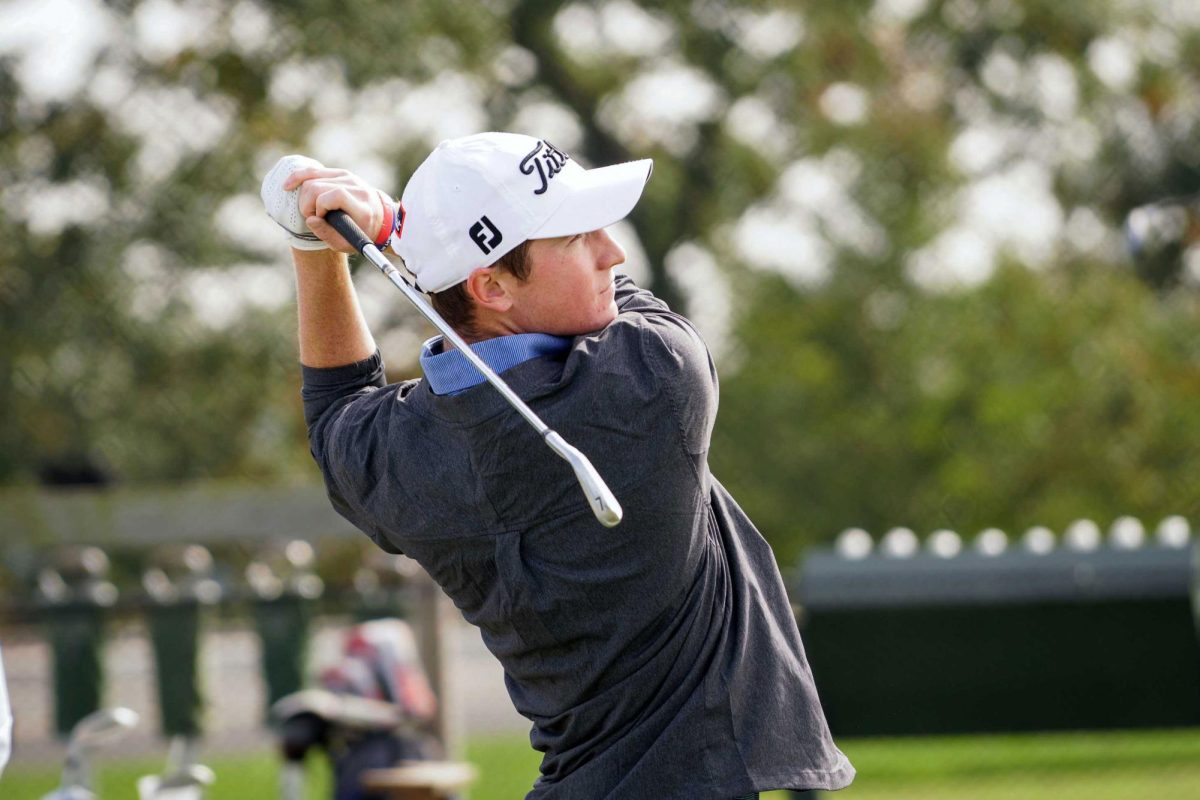The University’s plan to transfer its liquor license to the Smith Center would mirror more than half of GW’s Atlantic 10 peers.
Kevin Days, the director of community relations, proposed transferring GW’s liquor license from the Marvin Center to the Smith Center at a Foggy Bottom and West End Advisory Neighborhood Commission meeting Wednesday. Athletic department representatives from other A-10 schools said selling alcohol at sports arenas can increase concessions sales for the athletic department and liven up the atmosphere for the school’s fans.
GW is currently one of four A-10 schools – alongside St. Bonaventure, La Salle and Fordham – that does not currently sell alcohol to the general public at events. GW only sells beer and wine in its Colonials Club, a facility in the Smith Center that is used to host events for members of a donation club.
Of the 14 A-10 schools, 10 have arenas with liquor licenses, including Saint Louis, George Mason, Rhode Island, Dayton, Duquesne and Massachusetts. A-10 alcohol sales expanded in the last year when nearly a quarter of the conference – Davidson, VCU, Richmond and Saint Joseph’s – all began serving alcohol to the general public during the 2018-19 men’s basketball season.
Athletic department spokesman Brian Sereno declined to comment, deferring to a University spokeswoman. Days did not immediately return a request for comment through a spokeswoman.
Representatives of other A-10 schools said selling alcohol to the general public will increase revenue that can be used to expand funding in the athletic department’s budget.
Steve Mest, the associate athletic director for external relations at St. Bonaventure, which does not have a liquor license in its arena, said alcohol sales are another source of revenue that can be used to boost budgets in the athletic department. Like GW, the Bonnies sell alcohol at a restricted donor club in the arena.
“They’re going to draw in some more revenue for basketball events or for other special events, wherever they decide to serve it,” Mest said. “That’s obviously a factor for many schools, but A-10 and otherwise, increasing revenue to support athletics is always key no matter of how you do that.”
Mest said St. Bonaventure began exploring selling alcohol to the general public prior to the 2017-18 season, but its evaluation was inconclusive when it ended in the middle of the 2017-18 basketball season. He said the school is continuing to look into bartender training and licensing requirements to sell alcohol in its arena.
“It’s still on the table as a possibility for 2019-20, but at the time we made the decision, the timing was really the main reason that we actually just couldn’t pull it off,” Mest said.
Mest added that a liquor license in the Smith Center may excite fans who want to enjoy an alcoholic beverage at a professional sporting event. But he said some sports attendees may dislike the policy because the fans could become more rowdy.
“It’s not a one-size-fits-all thing in terms of the fanbase or your location,” Mest said. “It’s never going to be.”
Chris Kowalczyk, the assistant athletic director for athletics communications at VCU, which has a liquor license for its arena, said VCU limits the amount of alcohol individuals can buy to two drinks per transaction and restricts alcohol sales during the second half of a game to ensure fans do not over-drink.
“Our concessionaire, as well as our staff, works to ensure that fans are not overserved, or that fans are not being served underage,” he said in an email.
Jamie Hendricks, the assistant athletic director for external relations and game operations at Davidson, said Davidson officials involved in alcohol sales are trained in alcohol law enforcement, and local bars and restaurants manage the arena’s concession stands to ensure IDs are properly checked.
“If there are questions, someone looks a year younger, it’s at their discretion to check, and both their lives and ours would be in jeopardy if we missed on that,” Hendricks said.
He said alcohol is also not allowed in the arena’s student section because students who are 21 and older may pass along drinks to someone who is underage.
Hendricks said selling alcohol at games has increased revenue from non-students and attracted young alumni to games. The Wildcats have also seen more fans attending games since they began selling alcohol last year, with an average of about 4,000 attendees in 2018 – which ranks them seventh in the A-10 in fan attendance.
GW averaged about 2,500 fans per game at the Smith Center in 2018, putting it 11th among 14 other A-10 schools.
“We sold out seven out of nine conference games this season, which is one of our big goals,” Hendricks said.





